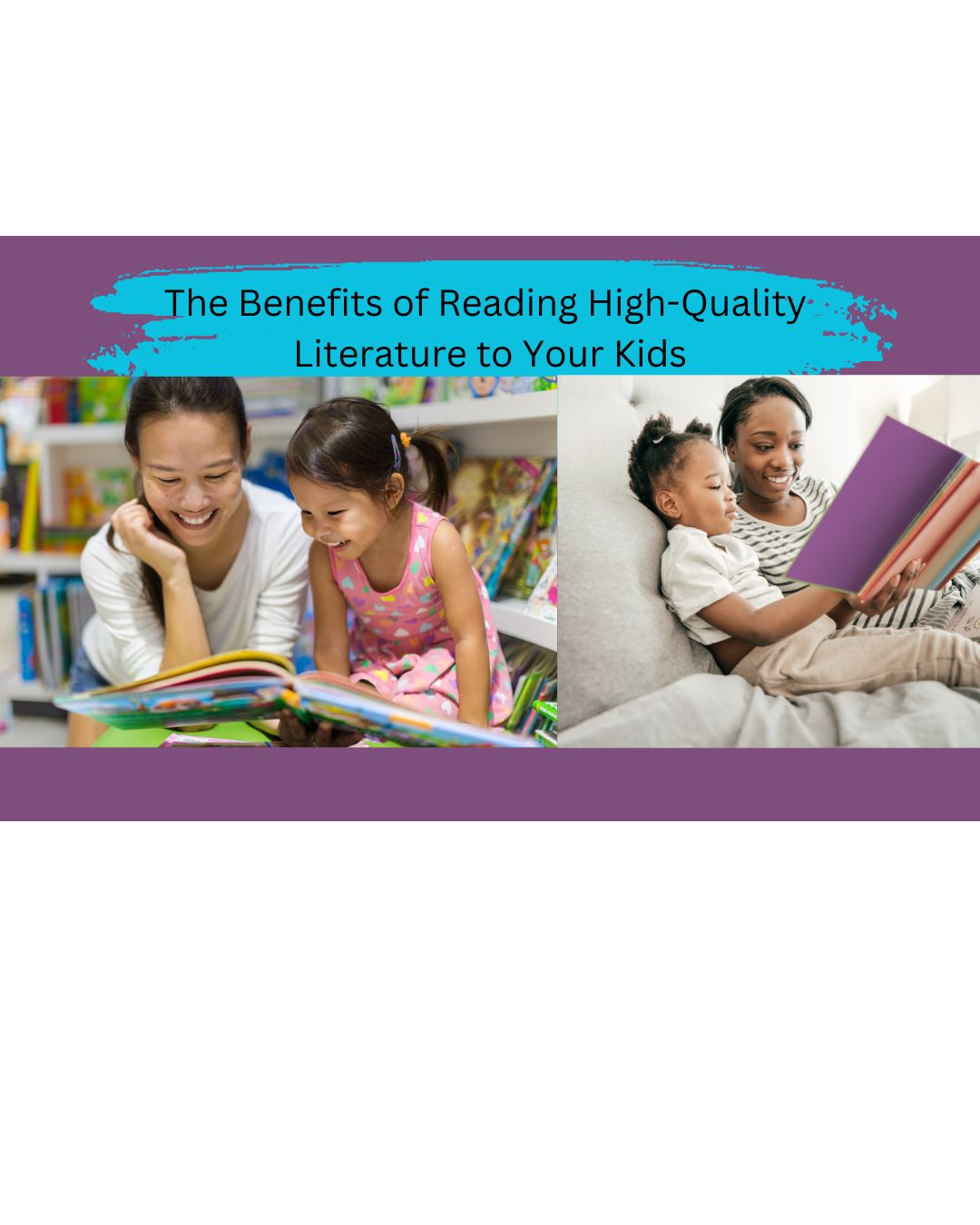
The Benefits of Reading High-Quality Literature to Your Kids
Share
When I started Primrose and May in 2024, I knew I wanted to celebrate and support moms. I wanted to make their lives, raising children easier. At first it was by curating stocking stuffers for moms. However, once the holidays were over, I had to ask myself what now? I wasn’t going to spend the entire year working on stockings. I wanted to offer other products.
I started brainstorming. I thought about what I love to do and what I was good at. Teaching. You see, long before I started Primrose and May, I was a full-time teacher. That thought launched me into my next offering. Art and activity kits that come with a video lesson and story time. There are plenty of how-to video art lessons on YouTube, some of them very good! However, I wanted to offer something more, something educational. I asked myself “what is one of the most powerful tools in education?” Books. Specifically high-quality literature. I hurried to my bookshelf and started pulling books that I loved to teach with. The pile grew bigger and bigger! Until I had enough books and lessons to fill at least one art lesson a week for an entire year! (Now can I plan, execute and get art kits ready that fast. Unfortunately, no, but I am working hard to get them out as fast as I can!) In case you are wondering why I go so excited about this direction let’s talk about why reading high quality Literature to your kids is important and what some of the benefits are.
In a world filled with screens and constant digital distractions, the simple act of reading to your child remains one of the most powerful ways to foster growth and connection. While any form of reading is beneficial, choosing high-quality literature can make an even greater impact on a child’s intellectual, emotional, and social development. Here’s why prioritizing rich, well-crafted stories can be one of the best gifts you give your child.
1. Expanding Vocabulary and Language Skills
High-quality literature exposes children to sophisticated language, varied sentence structures, and a broader range of vocabulary than everyday conversation or mass-market books. Exposure to rich language patterns helps children develop better communication skills, improves their reading comprehension, and even enhances their writing abilities as they grow.
2. Cultivating Imagination and Creativity
Classic and well-written stories transport children to different worlds, times, and perspectives, stimulating their imagination. High-quality literature often incorporates rich descriptions, complex characters, and deep themes, encouraging children to think creatively and develop problem-solving skills by engaging with intricate narratives.
3. Encouraging Critical Thinking and Emotional Intelligence
Books that explore deep themes, moral dilemmas, and complex characters help children develop critical thinking and empathy. By engaging with characters facing challenges, making decisions, and experiencing emotions, children learn to navigate their own feelings and better understand those of others. Thought-provoking literature fosters discussions about right and wrong, fairness, and resilience.
4. Strengthening Parent-Child Bonds
Reading together creates a special opportunity for parents and children to bond. When you share a story, you’re not just reading words on a page; you’re engaging in conversations, answering questions, and creating lasting memories. This shared experience fosters trust and emotional security, providing a foundation for open communication as your child grows.
5. Building a Lifelong Love of Reading
Exposing children to well-crafted stories from an early age nurtures a love for reading that can last a lifetime. High-quality literature captivates young minds with compelling narratives and beautifully written prose, making reading an enjoyable and enriching experience rather than a chore. A child who enjoys literature is more likely to seek out books independently, setting the stage for lifelong learning and personal growth.
6. Enhancing Cultural Awareness and Perspective-Taking
Great books introduce children to different cultures, traditions, and historical perspectives. By reading literature from diverse voices and backgrounds, children gain a broader understanding of the world and learn to appreciate different ways of thinking and living. This exposure fosters tolerance, inclusivity, and global awareness.
Choosing the Right Books
Not all children’s books are created equal. When selecting literature for your child, look for books that feature well-developed characters, meaningful themes, and rich language. Classics like Charlotte’s Web by E.B. White, Where the Wild Things Are by Maurice Sendak, or The Chronicles of Narnia by C.S. Lewis are excellent choices, along with modern, high-quality works by authors like Jacqueline Woodson, Kate DiCamillo, or Beverly Cleary.
The stories we read to our children shape their worldview, influence their values, and ignite their imaginations. Choosing high-quality literature ensures they are exposed to the very best language, ideas, and storytelling, setting them up for success in school and in life. So, pick up a great book, curl up with your child, and embark on a literary adventure that will enrich both of your lives for years to come.